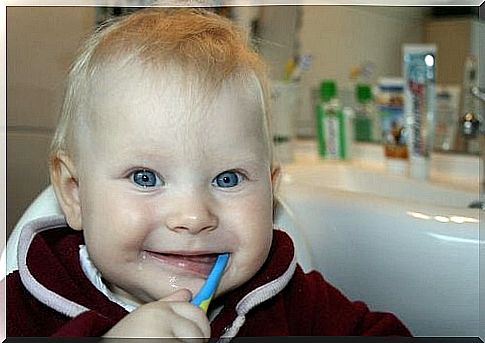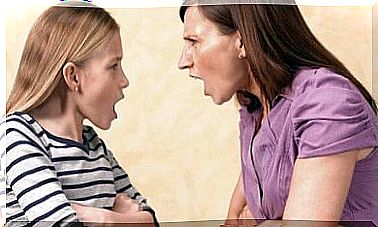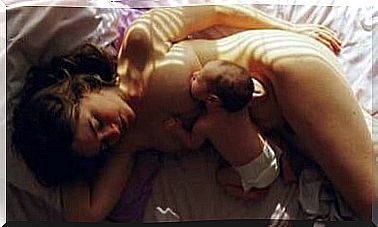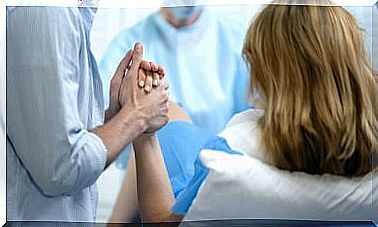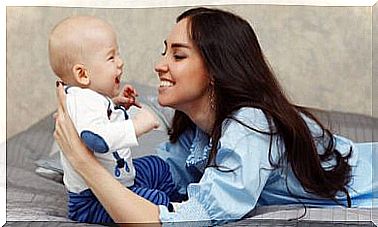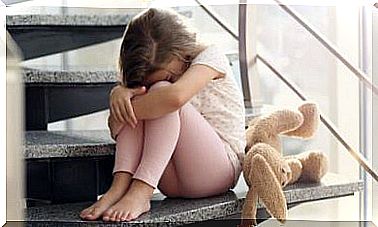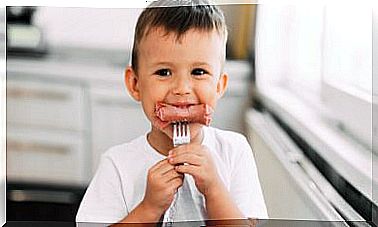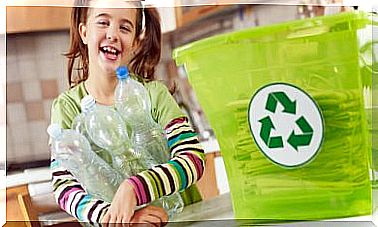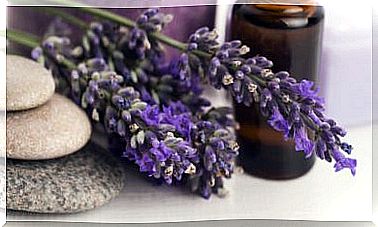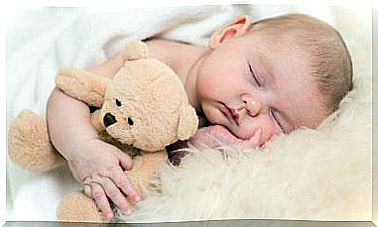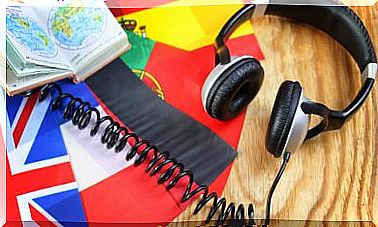When Should A Child Start Brushing Their Teeth?
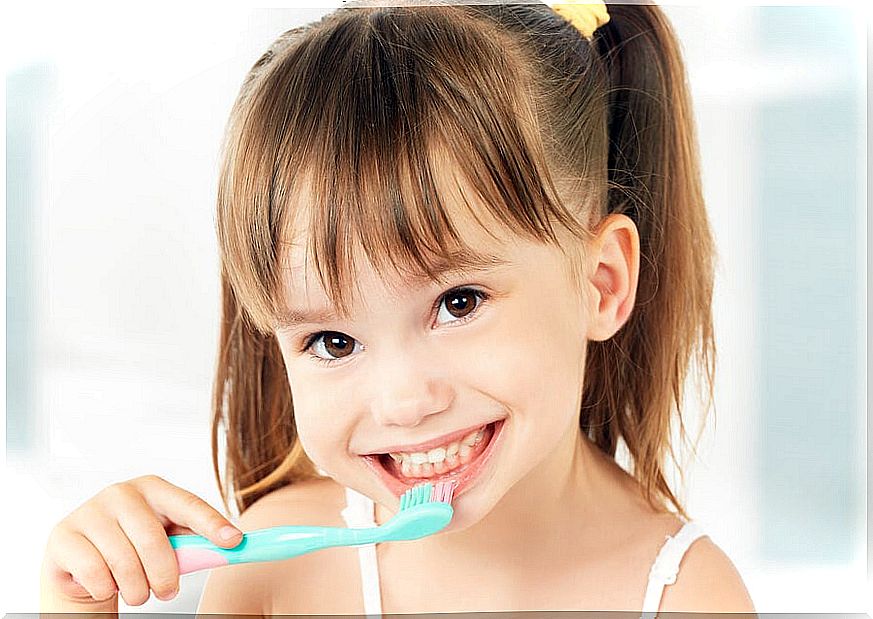
Establishing proper oral hygiene is of utmost importance, even before the first teeth erupt. Before these begin to grow, it is necessary to start cleaning the gums, the tongue and the inside of the mouth and cheeks with a special brush, gauze or cotton.
When the teeth have not yet erupted, multiple bacteria and fungi usually appear in the child’s mouth. For this reason, oral hygiene with implements other than a toothbrush is essential.
Parents, who are responsible for maintaining the hygiene of the child, should take care of brushing his teeth until he acquires the psychomotor skills to do it himself. Likewise, an early visit to the dentist is advisable to prevent cavities or other pathologies.
Oral hygiene so that children have healthy and strong teeth
It is best to start washing your baby’s mouth from the first days of your baby’s life. The first step is to clean the gums with a damp gauze or a washcloth.
Be aware that your child can develop a cavity as soon as a tooth comes out. At six months is when the four front teeth come out of the gums, although some children do not get their first tooth until 12 or 14 months.
If your child is under 3 years old, start brushing his teeth gently as soon as they start to erupt. You can use a child-sized brush and a quantity of fluoride paste no larger than a grain of rice.
You should brush your teeth twice a day, in the morning and at night, or follow the recommendations of your dentist or doctor. When your child is washing, make sure they use the right amount of toothpaste for their age.
It is also advised that, to protect your first teeth, you reduce the consumption of sugars. In that sense, it is better that you never let the child sleep with a bottle of milk or sugary juices, give him the food in his arms and do not dip the pacifier in sugar, honey or any other sweet liquid.
To prevent cavities, you can brush his teeth twice a day — after breakfast and before bed — starting from the first tooth.
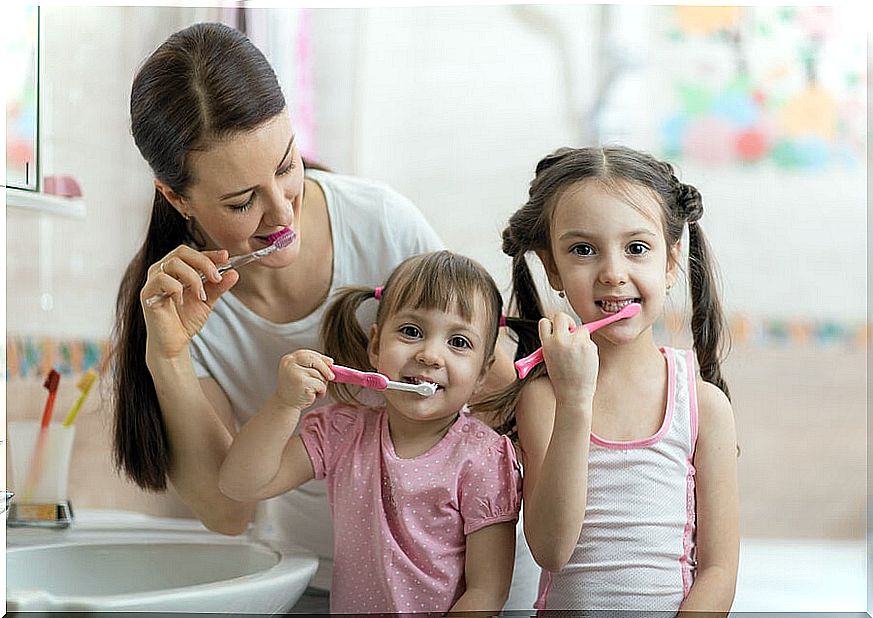
When is it necessary to go to the dentist and how to brush your teeth
Popular belief says that a child’s first visit to the dentist should be at two years of age, when all of his temporary teeth have erupted. However, new trends indicate that the first visit to the dentist should be made at six months of age, in order to prevent and educate parents about their child’s oral health.
With regard to the first care, it is important to clean the mouth with gauze a few days after birth. Also, once your child has two teeth touching, you should start flossing daily.
It is recommended that, if the child is under two years of age, brushing is done by their parents, with a toothpaste containing 1000 ppm —parts per million— of fluoride and using the minimum amount of toothpaste possible until they learn to spit. Fluoride pastes prevent cavities, but can cause poisoning.
Your first brush should be soft and soaked in water, unless your pediatrician or dentist tells you to put a small amount of fluoride paste to prevent cavities.
In case the child is between 3 and 6 years old, it is best to use a small amount of fluoride paste the size of a pea. Supervise your child when brushing and avoid swallowing toothpaste.
While still of school age, cleaning the infant’s teeth should be done by adults. Once the child is over 6 years old, he can begin brushing his teeth on his own, with adult supervision.
Problems that can occur when brushing your teeth
The main problem lies in evaluating the presence and effectiveness of fluoride in toothpastes to prevent tooth decay. At the same time, he should be prevented from ingesting fluoride because he does not yet know how to spit; it is a substance that can cause fluorosis.
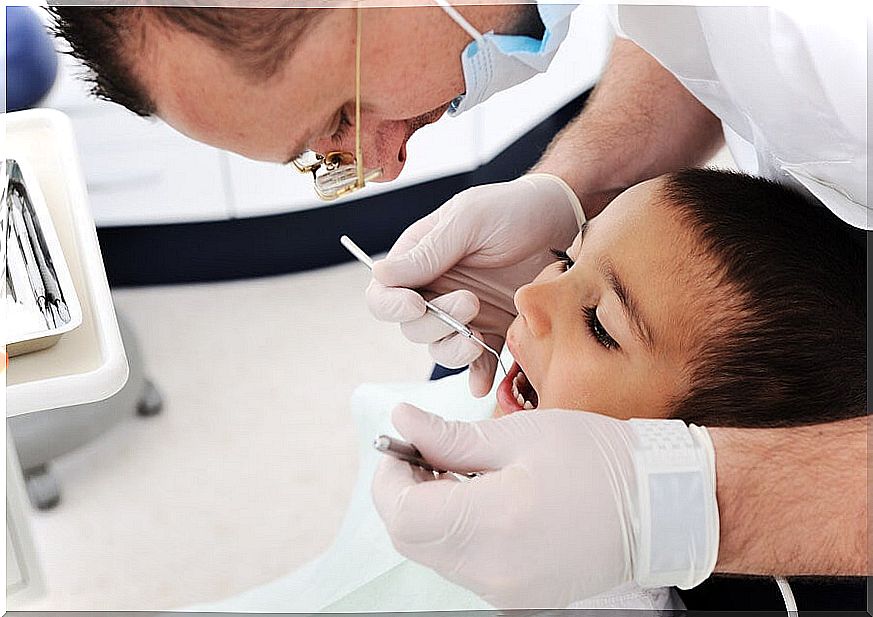
This condition, which attacks the enamel of the teeth and stains them brown, is most common during the period of tooth formation. For that reason, there are those who advise against using toothpaste for up to two years.
However, it is also considered that the prevention of cavities should begin as soon as the first teeth appear. So using toothpaste in very small amounts is almost a necessity.
Ultimately, giving your child good oral health can help protect their teeth in the future. Consultation with a professional from the first years of life will serve as a guide and, in addition, will allow the child to lose fear of the dentist.
